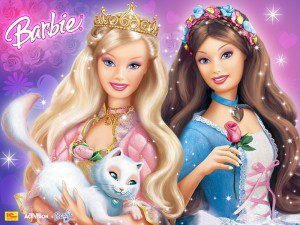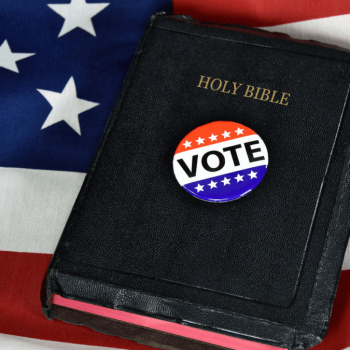 A recent piece over at Acculturated, a fun and thought-provoking site, just went viral. Mark Tapson wrote “In Defense of Disney Princesses” in response to a push by feminists to picture girlhood in more careerist terms. Tapson defended the idea of traditional femininity in his essay, and I’m very glad that he did. Speaking broadly, I agree with his perspective. Girlhood is different from boyhood. The way we raise little girls has some crucial differences from the way we raise little boys.
A recent piece over at Acculturated, a fun and thought-provoking site, just went viral. Mark Tapson wrote “In Defense of Disney Princesses” in response to a push by feminists to picture girlhood in more careerist terms. Tapson defended the idea of traditional femininity in his essay, and I’m very glad that he did. Speaking broadly, I agree with his perspective. Girlhood is different from boyhood. The way we raise little girls has some crucial differences from the way we raise little boys.
I do wonder, though, if it’s best that we train little girls not simply toward womanhood and femininity, but toward being “princesses.” Tapson, to his credit, reads being a “princess” in moral terms, as you can see here:
Moore’s comment about the Disney princesses reflects our cultural confusion about them. They aren’t intended to be career role models. They are moral role models. Disney movies aren’t telling girls that they should limit their aspirations to becoming princesses (although young women sometimes do become one, so be ready); they are teaching them to adopt the values of Disney princesses: kindness (Snow White), compassion (Ariel), intelligence (Belle), humility (Cinderella), courage (Merida), and determination (Tiana), among others. These are worthy attributes for boys as well as girls, but the point is that Disney isn’t steering girls toward being future trophy wives – it’s promoting values that make you a decent person, regardless of your career or lack thereof.
Tapson’s argument is definitely worth considering. Furthermore, he is one of the good guys, and I’m guessing he and I agree on a great deal, especially given that he’s addressing a specific problem. Let me say this in response: if virtuous conduct is what we mean by telling our little girls they’re “princesses,” then I’m cool with this terminology. I wonder, though, if “princess” culture can, consciously or unconsciously, stand for more than morality. I may be off here, but I worry that the widespread promotion of little girls as “princesses” can, perhaps unintentionally, encourage them to construe their self-identity narcissistically and aesthetically. What do I mean?
Well, a princess is by definition a high and lofty person. She draws, and in some sense deserves, attention. This naturally feeds our fallen tendency to be narcissistic, to think of ourselves as exalted and great. Also, from what I’ve observed–by temperament a limited survey, I readily admit–princess culture seems to focus on appearance. The princesses I have seen are without exception beautiful; they are by definition flawless, with porcelain skin (that’s ethnically problematic!), long, full hair, thick lips, huge eyes, petite form, and are even a bit curvy.
I gladly affirm, even as I point out these problems, that we should train our little girls to value their girlhood (their future womanhood), their form, their natural design. Furthermore, we shouldn’t deny beauty a place in life. In addition, if we’re faced with the choice of either gender-neutral training or girl-specific, princess-oriented childraising, I’m definitely choosing the latter. But as a father of a little girl, I am concerned that “princess” culture might train my daughter to see herself fundamentally in narcissistic and aesthetic terms. If that’s true, then I want to go the opposite way. I want my daughter to be humble, and if beautiful, to not find her identity in her beauty.
It would be easy to hit this issue really hard, and make it a nuclear issue. I’m not going to do that. If little girls play with Barbies, or watch Disney videos, I’m not losing my head. I’m sure that Disney princesses can teach and stand for some positive realities. Many good parents, with whom I share fundamental doctrine and worldview commitments, may carefully allow their daughters to play “princess” dress-up. I do not believe that is categorically wrong, that they are bad parents for doing so, or that they are ruining their children. They might be doing their best to teach the value and uniqueness of girlhood–if so, bravo. I might go a different way, but I am not doing so in a hyper-critical manner. Parents do things differently. That’s okay. This is a matter of prudence, and preference, not of salvation.
In short, I believe firmly that a little girl could be raised in a “princess-friendly zone” and end up loving the Lord and living a sold-out life for him. Make sense?
But I don’t think I will parent in this way. Here’s how I will. I hope to teach that womanhood owes to God’s design; that being a girl and a woman is a wonderful thing; that girls are different than boys, and that this is to God’s glory; that femininity is good, and that beauty is a gift of God, who is beautiful; that humility is essential to godly character, and at the core of the gospel of Christ; that there are far more important things in life than to be pretty, popular, noticed, wanted, and exalted; that in the Bible, womanhood is not disconnected from femininity, but womanhood is most essentially characterized not by attractiveness or social charm, but self-sacrifice, a gentle and quiet spirit, an inclination to support godly men in appropriate spheres, and a desire to take dominion of all of life for the honor of Almighty God.
I would submit that this vision of womanhood will do more to bless little girls than Disney’s vision, though there is and can be overlap between the two. Do we really want to risk putting more pressure–however unintentional–on our daughters to construe their identity in terms of appearance? Don’t they get enough of that from the world? Do we want them to subtly pick up cues that might seem to indicate that we are hoping, to even a small degree, that they end up a prom queen, or a beauty pageant winner? Do they, as sinners, really need help to be narcissistic and proud?
Are there ways, in sum, that we can train our little girls to be feminine, to know that they are loved and valued with every fiber of our being, and yet avoid worldly pressure and temptation? I think so. I hope so. The only status higher I can think of than to be a king or queen, a prince or princess, is to be a child of God, a priest in the kingdom of Christ, as every believer is and will be for all the ages to come.















